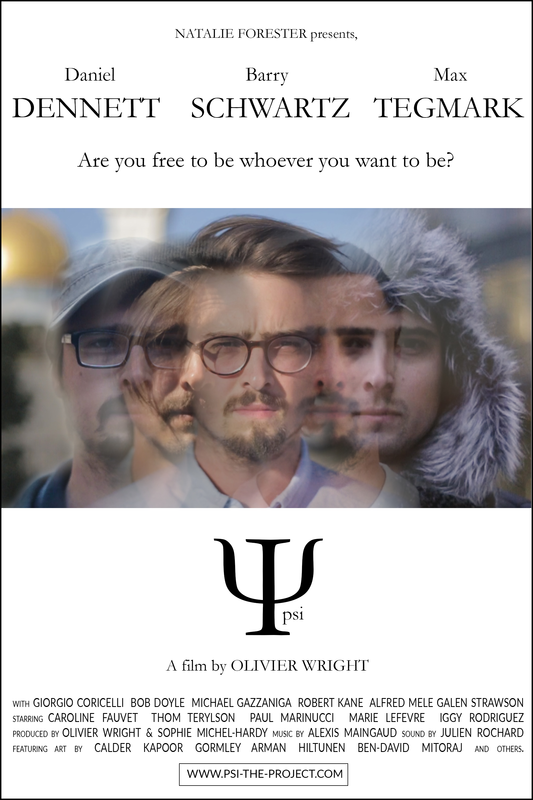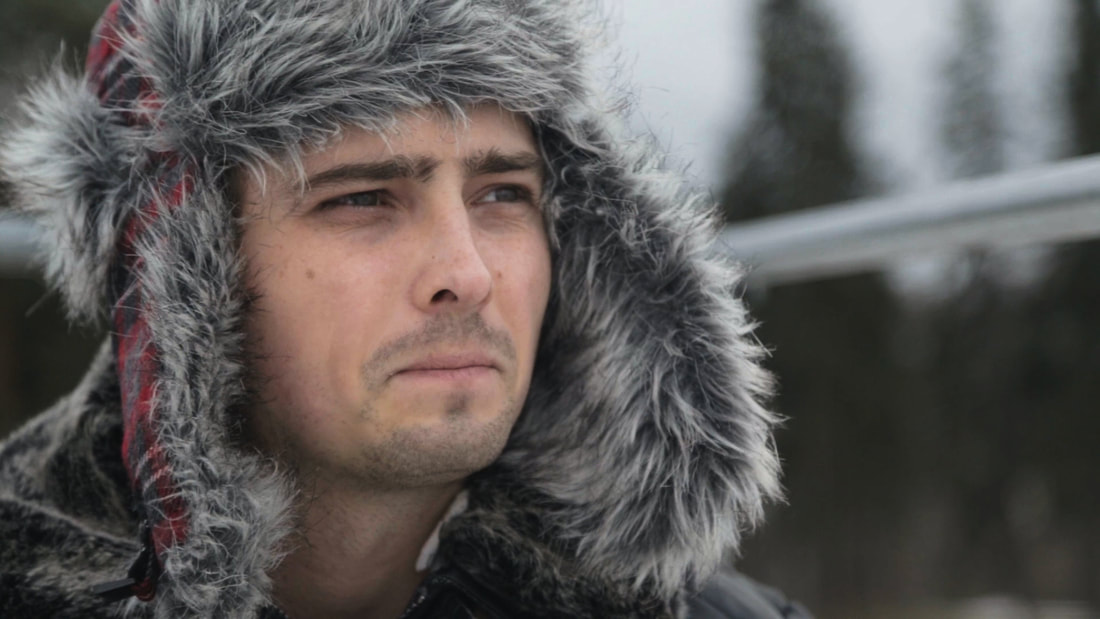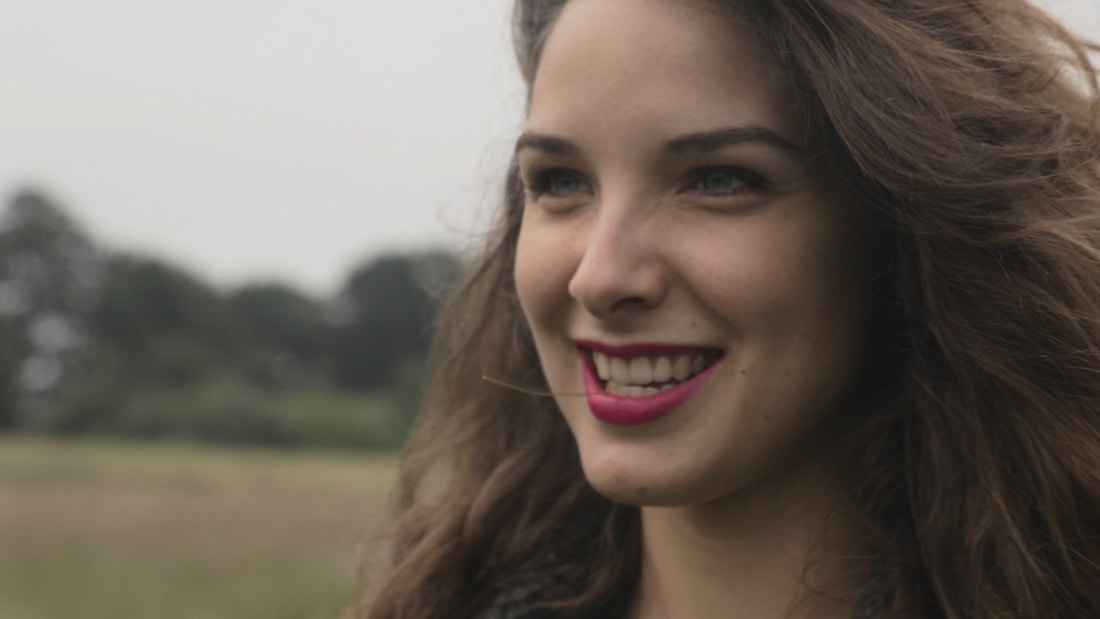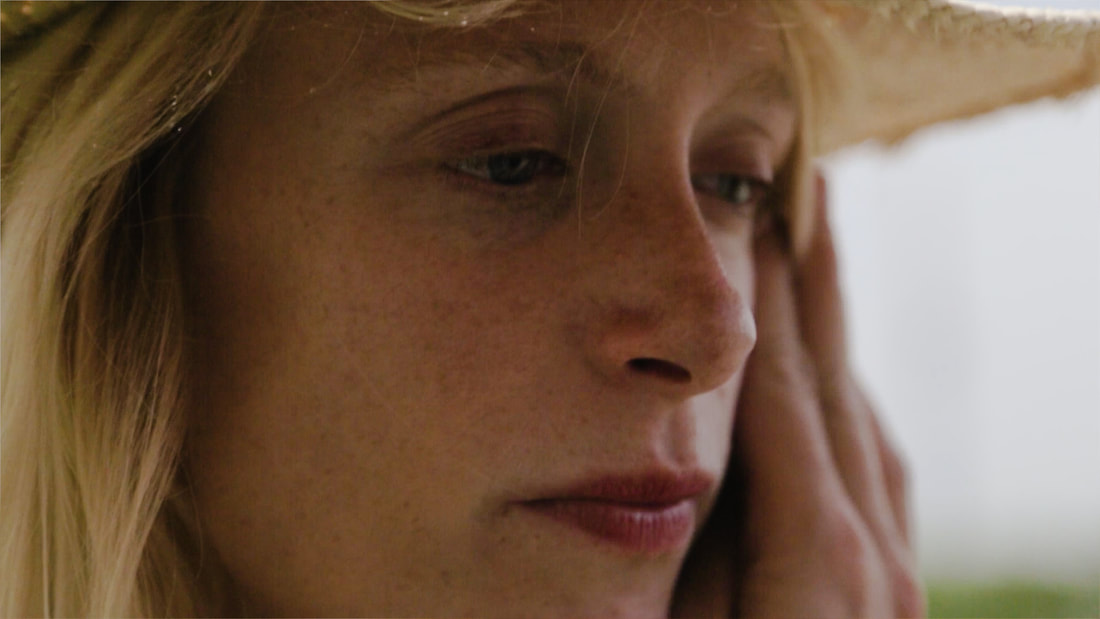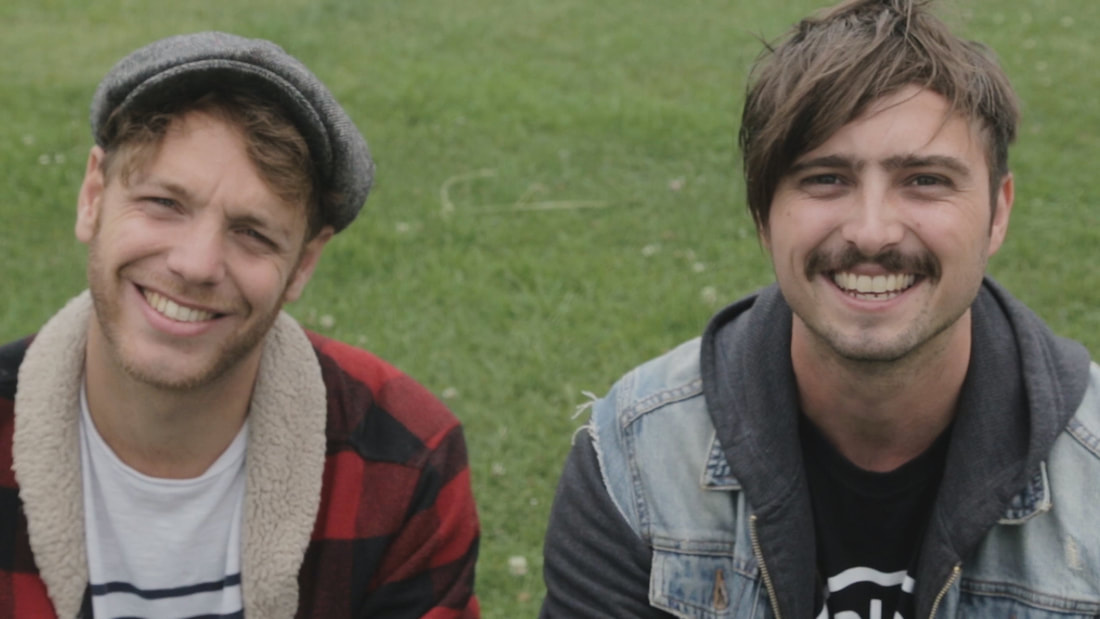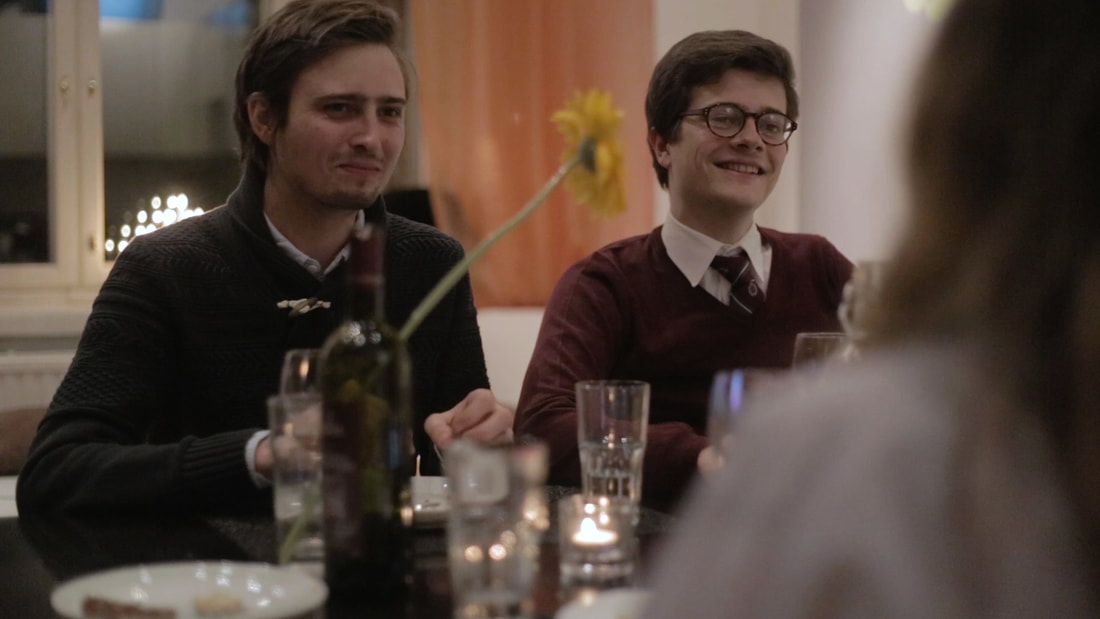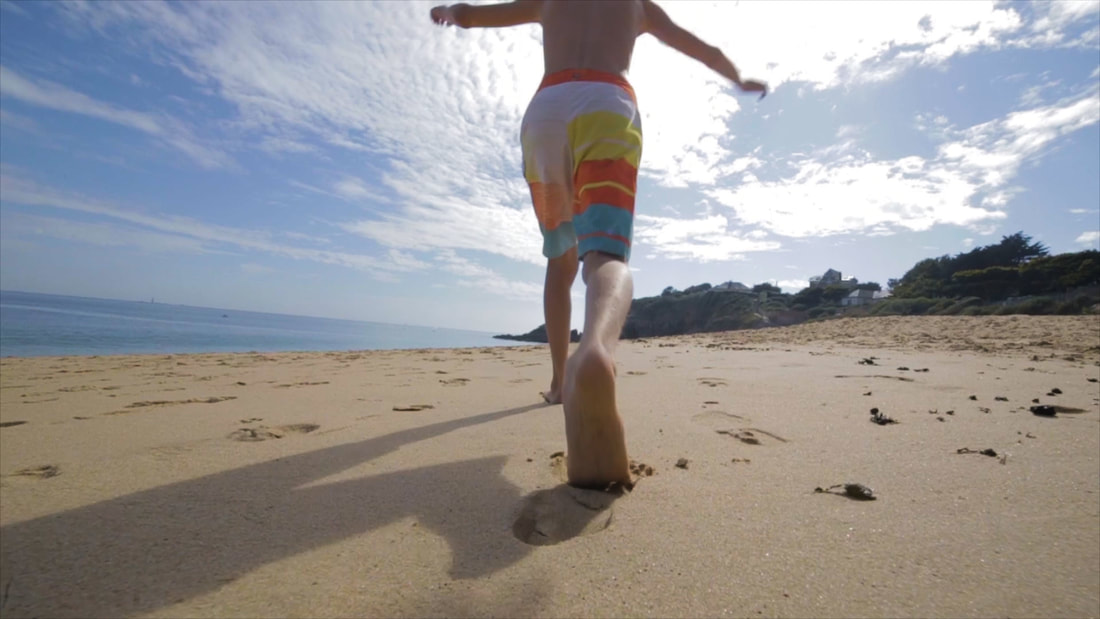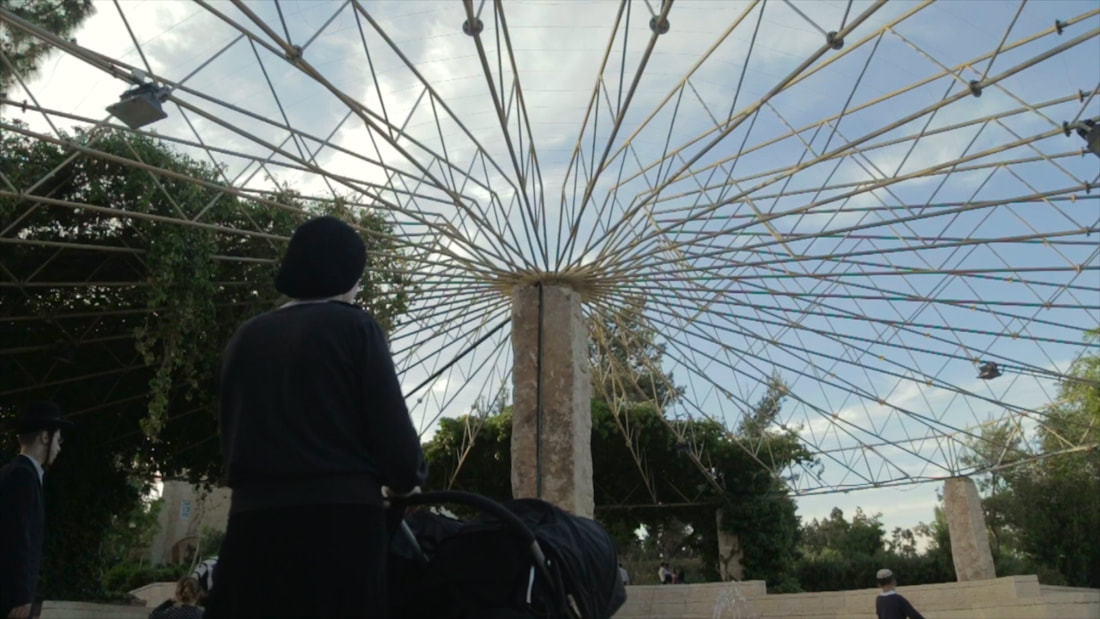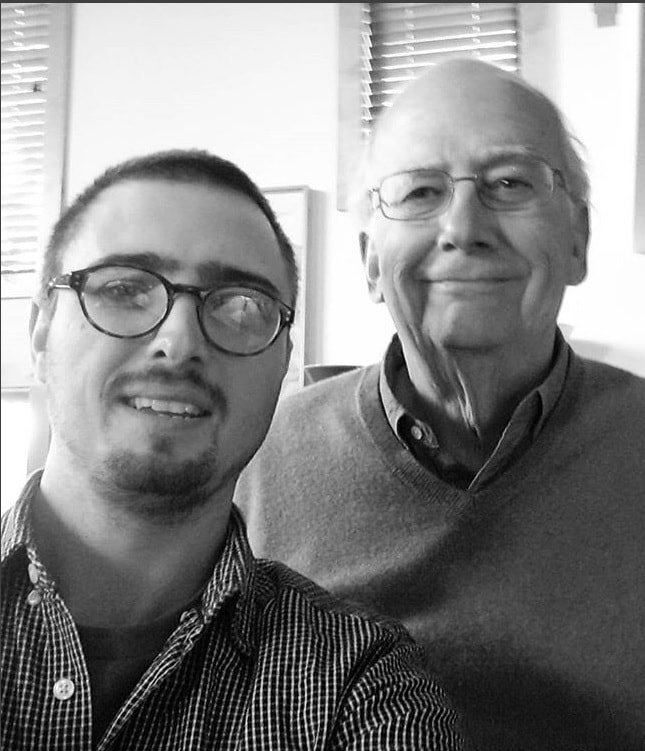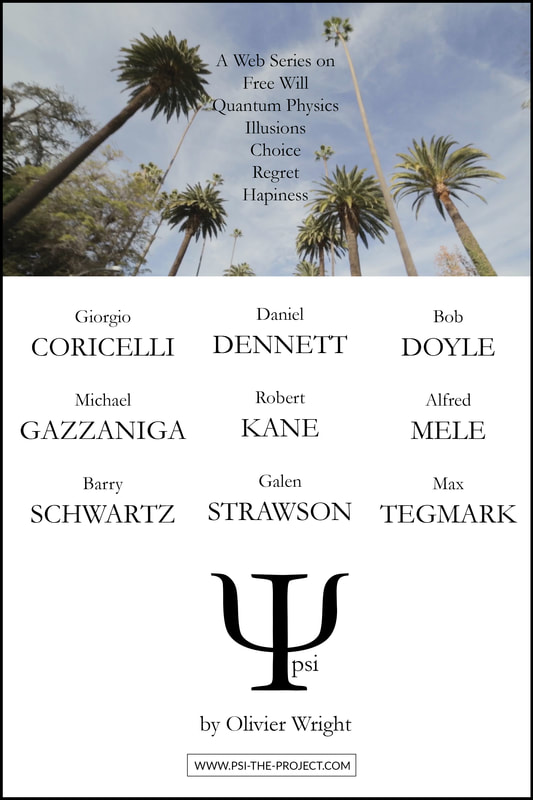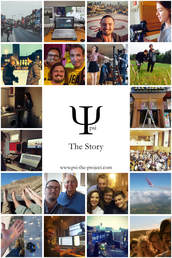Ever wondered what your life would be like if you'd done things differently?
If you had pursued your passion? If you hadn't met that person? If you had taken that opportunity?
Perhaps you would be happier today. Or poorer. Or famous.
Or what if, in fact, things could not possibly have been any different...
If you had pursued your passion? If you hadn't met that person? If you had taken that opportunity?
Perhaps you would be happier today. Or poorer. Or famous.
Or what if, in fact, things could not possibly have been any different...
|
|
|
SYNOPSIS Ψ (psi) tells the story of a one-of-a-kind experiment conducted by a psychologist, Natalie, who's studying one of her patients, Olivier, a clinically depressed 27-year-old who was so torn about what to do after high-school that he chose nothing and retreated into leading the life of a hermit. In order to understand and help him, she travels across dimensions to meet 5 alternate versions of him, each one having branched out from their common past through different decisions. He's now become:
In each case, Natalie will try to understand: how much did he control his trajectory? What choices did he make and why? What are his regrets? And most importantly, is he happy? However, in doing so she has to face her own crisis: why did she pursue a career in psychology at the expense of her childhood dream of becoming an actress? The film as is a mesh of fiction and documentary, where real-world philosophers and scientists including Max Tegmark (MIT), Daniel Dennett (Tufts) and Barry Schwartz (U.C. Berkeley) provide insights on freedom, choice and regret as the film explores beautiful works of art and architecture across the 5 cities (from Alexander Calder, Anish Kapoor, Eila Hiltunen, and others - list here). |
|
|
|
SPECS
Title: Ψ
Runtime: 92 mins Language: English, French Locations: Paris, London, Helsinki, Jerusalem, Los Angeles Camera: Canon 6D Format: HD 1080p Budget: $25.000 |
DIRECTOR
Olivier Wright is half-French, half-English. After dropping out of his first year at EICAR film school, he earned a Bachelors in Law and Political Science from Université Panthéon Assas as well as Master's Degrees in Philosophy and International Relations from King's College London and La Sorbonne. In his twenties, he pursued several professional avenues and worked as a freelance translator, but never lost his passion for film making, writing several short and feature screenplays. In 2014, he began shooting his first film, PSI.
|
|
|
|
MUSIC
ALEXIS MAINGAUD is a French composer. A classically trained pianist and violinist. Since graduating from ESRA film school, he's composed and orchestrated the scores to several documentaries and over 40 short films. PSI is his first feature film. He recently scored his second feature, The Sonata by Andrew Desmond (2018).
|
SOUND
JULIEN ROCHARD is a French sound designer & mixer. Since graduating from EFET film school in 2008, he's been working for radio, television (Odyssée, Planète), corporate videos (l'Oréal, Chanel) and on several short and feature films (La Danse des Accrochés by Dantel). He runs his own sound studio, "Studio 74".
|
COLOR
FANNY MAZOYER is a French cinematographer and colorist. After graduating from ENS Louis Lumière in Paris and AFTRS in Sydney, she has worked on several documentaries (Tropical Suite, by Agnès Dherbeys) and fictions (DIQUA DAI MONTI, by Benoît Bouthors).
|
ACTING CAST
|
CAROLINE FAUVET In the film: Caroline, in London she's an aspiring actress & Olivier's best-friend; in Paris, she's a successful actress & Olivier's wife.
In real life: Caroline Fauvet is a French actress known for Je Suis Branché(s)(2016) and Géronimo (2014). Recently, she has been writing and developing her own projects. She met Olivier through a common friend in 2013. |
|
THOM TERYLSON In the film: Thom, a bartender, Olivier's coworker and roommate in London.
In real-life: Thom Terylson is a French Actor who studied at the Cours Florent school in Paris. He's performed in several short films as well as on stage, in "Sallinger" by Koltès. Thom and Olivier are best friends since high-school. |
|
PAUL MARINUCCI In the film: Paul, a corporate lawyer and Olivier's boyfriend in Helsinki. In real life: Paul Marinucci is a French medical executive working for a major French pharmaceutical company. A trained musician, he composer part of the score for the PSI Web Series. He is high-school friends with Olivier and Thom Terylson. PSI is his first film credit. |
EXPERT CAST
|
|
DANIEL DENNETT is an American philosopher, writer and cognitive scientist. He is the co-director of the Center for Cognitive Studies and Professor of Philosophy at Tufts University. Known for his positions on consciousness, free will and secularism, he is widely considered one of the greatest living philosophers.
BARRY SCHWARTZ is an American psychologist who is Professor at UC Berkeley and Emeritus Professor at Swarthmore College. He's the author of the bestselling books The Paradox of Choice (2005) and Why We Work (2015) and frequently editorialist in The New York Times. His TED talk on the paradox of choice and his TED talk on practical wisdom have been seen over 13 million times.
MAX TEGMARK is a Swedish-American cosmologist, professor at MIT, scientific director of the Foundational Questions Institute and co-founder of the Future of Life Institute. He is a prominent voice in the media on topics such as the nature of reality, parallel universes, consciousness and artificial intelligence. He is the bestselling author of Our Mathematical Universe (2015) and Life 3.0 (2018).
MICHAEL GAZZANIGA is an American neurobiologist and head of the SAGE Center for the Study of the Mind at UC Santa Barbara. Considered the father of cognitive neuroscience, he is a member of the National Academy of Sciences.
ROBERT KANE is an American philosopher, Distinguished Professor of Philosophy at the University of Texas at Austin. He is considered the leading philosopher arguing for a libertarian kind of free will.
ALFRED MELE is an American philosopher and Professor of Philosophy at Florida State University. He is also the Director of the Philosophy and Science of Self-Control Project and past director of the Big Questions in Free Will Project (2010-2013).
GALEN STRAWSON is a British analytic philosopher who is Professor of Philosophy at the University of Texas as Austin. He has been consultant editor at The Times Literary Supplement as well as a regular literary critic at The Observer and The Guardian.
BOB DOYLE is an American astrophysicist, philosopher and entrepreneur. He is an Associate in the Harvard Astronomy Department. For decades, he has researched and written about the ideas of hundreds of philosophers and scientists: www.informationphilosopher.com
GIORGIO CORICELLI is an Italian Economist and Psychologist who is professor at the University of Southern California. His areas of research include the role of counterfactual emotions, such as regret and envy, in decision making.
CHOICE & REGRET
PSI first approaches the question of human freedom in psychological terms: modern societies offer people more freedom to choose than at any other time in history, encouraging them to go out in the world and become who they want to be. And while this explosion of choice has undoubtedly been beneficial in many ways, it has also caused many negative effects that directly have an impact on people's sense of freedom and quality of life. This paradox is striking precisely because it is counter-intuitive: why doesn't more freedom to choose always yield more well-being? How can more choice turn into less freedom? And what can be done to fight these faults, to fully embrace one's freedom to choose and lead a happy life? The film deals with this prevalent sense of helplessness in modern society, especially with people in the early stages of their adult life: what field to study? what career to pursue? what relationship to commit to? what city to live in? These are questions that are particularly consuming for generations living in a place and time where such freedom is awarded to them - and despite the obvious benefits of such opportunities, this freedom is not without its pitfalls - pitfalls which should be corrected. Indeed, the presence of many options drives people to get the best rather than being satisfied with merely good results, which inevitably leads to paralysis, bad decisions and regret. PSI sheds light on this perverse cycle and helps us find ways to counteract it and focus on what really matters in order to have a more appeased look on our own successes and failures.
FREE WILL AND OUR PLACE IN THE COSMOS
Beyond the question of how free we are in a psychological sense lays the more fundamental question of whether we are free scientifically to determine the course of our lives, with regards to the laws of the universe. Do we really have a say in what happens to us? Could we ever actually have done any different? In other words, do we have free will? For several decades, popular science has touted that free will is impossible because, although we feel we are in charge, everything is determined - by our culture, by our upbringing, by our genes and at the base of it all, by the laws of physics. People react differently to this: some feel relieved because it means that in some way, things are out of their hands. Others feel distress and lose their bearings, feeling like they have no control over their lives or that they are merely puppets to the mechanics of the cosmos. Does it make sense anymore to regret, to doubt, to hope, to blame - if everything is determined? Yet it seems necessary not only for our own personal sanity but also for the good functioning of society that these values hold some meaning. In the last century, classical physics has been challenged by quantum physics, some interpretations of which argue that the universe is actually random. While this would mean that the future is not unique and predetermined, how would this help with freedom? Does quantum randomness affect the brain in any useful sense? And if it does, then why aren't we simply subject to chance? By questioning human freedom in light of these two extremes - Necessity on one hand, and Chance on the other - the film challenges us to really consider what our place is in the physical universe and see what it really means to be free.
An conversation with filmmaker Olivier Wright
What was the starting point for this project?
In 2014, I was working as a freelance translator and studying philosophy and political science at University, preparing for a PhD in one or the other. But I was 27 at the time and feeling the pressure. My whole life I’ve been torn between making films and exploring other avenues: there were times I wanted to become a lawyer or a judge, and then later I really thought I’d work in diplomacy or journalism. But I never did commit to any of them, because I wanted them all, so I always tried to keep a foot in all tracks. And I think it was the realization that these tracks were naturally narrowing down towards doing one of these PhDs that freaked me out. I knew, deep down, that I would regret not trying to become a filmmaker. So if I was going to pick a lane, that lane had to be filmmaking.
Is that where this idea of 5 parallel lives came from?
I think everyone wonders how their life could be if they'd done things differently. I certainly do. And I'm also amazed how some of the most important things in life - where you live, what job you have, who your best friend is, who you fall in love with - if you think back they often all hinge on tiny events that could just so easily have not happened, or happened just a bit differently. It's frightening and at the same time beautiful. This is why I'm interested in free will - how much of our lives are we responsible for? So the film was not only a way for me to experiment all these lives but as a project itself it's an experiment in free will: could I just decide to take control of my future and dictate who I was going to become? I knew it wouldn't happen overnight, so it was about focusing on things step by step. And the first thing was actually believing that I was going to do it and buying the equipment. Because once your money is in it, there's no turning back.
What equipment did you buy?
A Canon 6D DSLR, with three lenses, a 24-105mm, a 50mm and a wide angle 14mm. I also got a tripod, a second-hand Glidecam and a shoulder mount. And a backpack, to carry it all!
In 2014, I was working as a freelance translator and studying philosophy and political science at University, preparing for a PhD in one or the other. But I was 27 at the time and feeling the pressure. My whole life I’ve been torn between making films and exploring other avenues: there were times I wanted to become a lawyer or a judge, and then later I really thought I’d work in diplomacy or journalism. But I never did commit to any of them, because I wanted them all, so I always tried to keep a foot in all tracks. And I think it was the realization that these tracks were naturally narrowing down towards doing one of these PhDs that freaked me out. I knew, deep down, that I would regret not trying to become a filmmaker. So if I was going to pick a lane, that lane had to be filmmaking.
Is that where this idea of 5 parallel lives came from?
I think everyone wonders how their life could be if they'd done things differently. I certainly do. And I'm also amazed how some of the most important things in life - where you live, what job you have, who your best friend is, who you fall in love with - if you think back they often all hinge on tiny events that could just so easily have not happened, or happened just a bit differently. It's frightening and at the same time beautiful. This is why I'm interested in free will - how much of our lives are we responsible for? So the film was not only a way for me to experiment all these lives but as a project itself it's an experiment in free will: could I just decide to take control of my future and dictate who I was going to become? I knew it wouldn't happen overnight, so it was about focusing on things step by step. And the first thing was actually believing that I was going to do it and buying the equipment. Because once your money is in it, there's no turning back.
What equipment did you buy?
A Canon 6D DSLR, with three lenses, a 24-105mm, a 50mm and a wide angle 14mm. I also got a tripod, a second-hand Glidecam and a shoulder mount. And a backpack, to carry it all!
|
So how did the shoot happen?
I travelled to the five locations in the film - Helsinki, Jerusalem, Paris, London and Los Angeles - and it was just like continuously walking into the unknown. It was all done on the fly, with no permission, everything was improvised. I'd usually handle the camera except for shots I'm in, in which case someone else would do it - friends, family, friends of friends, strangers... whoever was there. There are some shots in Jerusalem where literally some kid I met in the streets moments before is holding the camera, and others where the camera is operated by Stéphane Le Parc, a French cinematographer. And somehow, it all comes together. Why did you choose to act in the film? Originally it just grew out of necessity. I wanted to make a film that showed the 5 alternate lives of the same character, each one living in a different city. A year earlier, I had even started writing a screenplay with this premise about some fictional character. So when I turned to actually thinking about what I could do here, I just didn’t have the money to bring an actor with me everywhere, especially given how flexible, time-wise, things were going to be. So the only real solution was for me to play the character. And once I overcame the initial discomfort at casting myself as the lead in my own movie, I just thought I'd make the most of it and drew on my own life to build the characters. So why these 5 cities: London, Paris, Jerusalem, Los Angeles and Helsinki? Again, I didn’t really choose them, they chose themselves out of convenience. You know a lot of of small-budget filmmakers will reverse engineer the ends from the means. So I first established: where can I go? And I picked places where I had friends |
or family living there, who could host me and also help out with the shoot. And then I wrote believable stories to fit them. The first 18 years are the same for all the characters, and then we branch out into different lives. Some are pretty much exactly what my life was like at times: I’ve been a bartender in London, I’ve had an office job and worn a suit every day like the life in Helsinki. What mattered really was they were all consistent - and this is where the paradox lies: how can five different people all come from the same source?
|
In Los Angeles, you are in a homeless shelter. Why did you choose to show this life?
I wanted to confront the character to success and failure, and the strongest image for this character was to have him fail in the one place that is the symbol of filmmaking success: Hollywood. What if he went to Los Angeles to try and make it but failed and through bad luck lost everything? How did you come to shoot in the homeless shelter? It was tricky, because I didn’t know anyone in Los Angeles and Skid Row is not an easy place to just show up and ask to shoot a film. Also I had no idea whether I’d manage to convince a homeless shelter to let me film in. I sent out some e-mails, only a couple replied. I went to The Midnight Mission and met Joey who at the time was a resident in the recovery program and in charge of the volunteers. We connected, he saw that this project was coming from the right place and vouched for me. I went there regularly for about a month to volunteer and get to know the people, and then we shot for a couple days – the camera operator for those scenes, Toby, was also at the time a resident of the Mission. Now Joey and Toby, who are still good friends, have got their own places, good jobs, stable lives with a girlfriend and kids. They're living proof the Mission does some great work, and for me, as an outsider, it was an unforgettable experience to be there, to get to know them and to get to capture some of their daily lives in the film. The film features some renowned intellectuals - why this choice? I wanted the film to be a serious reflection on difficult subjects, like free will and choice and our place in the universe, and I felt there's no one better to give insights on questions of philosophy and science than philosophers and scientists. And I knew that adding their voices to the view of the fictional stories would be an unusual experience, something you don't see often, and I wanted to test some narrative boundaries. It's not a docu-fiction, it's something else. It's is a mesh of reality and fiction. |
Was it hard to get these experts in the film?
I was surprised, to be honest. At first I thought I’d ask my own philosophy teachers in Paris to be in the film, because they knew me personally. But they were all really reluctant. I couldn’t believe it. At that point I thought “no way I’ll be able to get top British and American intellectuals to be in the film.” But I still sent out some e-mails, and what do you know, some of them said yes and they're in the film! I guess that says something about the openness of English-speaking academia, or maybe something more about the close-mindedness of French academia. I don't know.
I was surprised, to be honest. At first I thought I’d ask my own philosophy teachers in Paris to be in the film, because they knew me personally. But they were all really reluctant. I couldn’t believe it. At that point I thought “no way I’ll be able to get top British and American intellectuals to be in the film.” But I still sent out some e-mails, and what do you know, some of them said yes and they're in the film! I guess that says something about the openness of English-speaking academia, or maybe something more about the close-mindedness of French academia. I don't know.
|
Why do you think this film speaks to people?
Because it deals with questions that we all wonder about - what if I had done this? why am I not happier with my life than I should be? how much of my own successes and failures am I responsible for? These are consuming questions, especially in modern western societies, and even more so in the last 20-30 years. Generation Y, Millenials, whatever you want to call us - we’re part of a generation that has really been given access to the world and infinite opportunities but also, and I think this is crucial, we are told from a young age, by parents, peers, culture, that we can do and be anything we want, that we should expect this level of control and achievement. But things aren't so easy in practice: people struggle to choose and when they do chose, they often aren't as satisfied as they think they should be. That's why you get the so-called "quarter-life crisis", where people between 25 and 30 panic because they don't know what to do with their life, they don't know whether they should get married or keep looking for a better fit, have a kid now or later, go into this field or this one, pursue their dream or risk regretting it forever. Obviously, these are problems that affect affluent, democratic societies. For sure, there are bigger, more vital issues in the world today. But if we consider affluence and freedom to be good - and I think we do, we want all societies to have more - then the ills of the free and |
affluent need to be addressed along the way. And I really think this is the most pervasive psychological ailment of our time: the inability to be satisfied with what you have. The disappointment that your reality isn't as good as you think it should be. And this is tragic - because if you blame yourself, it can lead to helplessness, depression and even suicide. And if instead you blame the world, it leads to people lashing out, taking revenge on a society they think has slighted them. It's a nasty psychological issue because once you get a hold of it, you see it's brewing to some degree in most of us, and it needs to be addressed.
So what is the message of the film in this respect?
The hope is that it will help people see what matters in life and give them a better sense of their own freedom and place in the universe. It's interesting because the film elicits a sort of paradoxical experience, because it puts the finger on subjects that you thought you had a handle of, and then you realize you had only scratched the surface. With free will for instance, I think most people intuitively think they know what it means, and then as soon as they start looking closer, they get sucked into it because they realize this is more important than they thought. Or when Barry Schwartz talks of choice and regret and says something like “the more options people have the more likely they are to regret the option they've chosen,” it seems completely self-evident but you're utterly captivated because you're understanding things much clearer and learning great deals about yourself in the process.
So what is the message of the film in this respect?
The hope is that it will help people see what matters in life and give them a better sense of their own freedom and place in the universe. It's interesting because the film elicits a sort of paradoxical experience, because it puts the finger on subjects that you thought you had a handle of, and then you realize you had only scratched the surface. With free will for instance, I think most people intuitively think they know what it means, and then as soon as they start looking closer, they get sucked into it because they realize this is more important than they thought. Or when Barry Schwartz talks of choice and regret and says something like “the more options people have the more likely they are to regret the option they've chosen,” it seems completely self-evident but you're utterly captivated because you're understanding things much clearer and learning great deals about yourself in the process.
|
What other films inspired you for this film?
There are a few. "Mr. Nobody" by Jaco Van Dormael in the subject matter. I'm also a huge fan of Godfrey Reggio's "Koyaaniskatsi" and Ron Frick's "Baraka" and "Samsara" - these films proved to me that contemplative imagery could be captivating if serving a theme or a quest. But the film that most inspired me was "The Tree of Life" by Terrence Malick. Seeing that film awoke something in me and in many ways I wrote PSI in response to it. PSI really asks the same questions about our meaning in life and place in the cosmos – but it approaches them differently. I wanted to really dig deep into the philosophy and science. You speak of contemplative imagery: there are some world-famous artists featured in this film – Kapoor, Arman, Gormley - why this focus on art and architecture? I wanted people to take the time to look at the world differently. And this goes by showing them things they may be familiar with, like public works of art or architecture that they might walk by every day, but holding their gaze on them so they see them in a new light. These works connect the cities and then become visual metaphors for themes of the film as we listen to the characters or the experts. I wanted people to feel transported, to go on a real journey not only through the world but inside their own head. Music also plays a big role throughout the film - how did you go about that? I didn't know any composers, so I looked online and found an article on a young French composer called Alexis Maingaud who'd just won his first award for a short film, "L'Odyssée Polaire". I listened to the music and loved it, so I sent him an e-mail, explaining what PSI was about. We met over coffee and clicked. We worked very closely over a year in parallel on |
|
the edit and the music – and both evolved together. Alexis is an amazing composer. He was brave, willing to go places, to go from epic Hollywood symphonies to more experimental, modern classical pieces. We really wanted the music to take the audience on a journey, through space, through time, into their own minds, and embody the core themes of the film: determinism, chance, free will. The range he’s shown and the quality of the music given the limited resources is incredible.
So on the production side - how did you pay for it and how much did it cost?
During the whole shoot I was still working as a freelance translator and all my money went into it. Some of my friends and family chipped in from time to time to help. I spent approximately $25.000 over 4 years - and that includes equipment, travel, accommodation when I had to pay for it, some people I paid for their services.
So on the production side - how did you pay for it and how much did it cost?
During the whole shoot I was still working as a freelance translator and all my money went into it. Some of my friends and family chipped in from time to time to help. I spent approximately $25.000 over 4 years - and that includes equipment, travel, accommodation when I had to pay for it, some people I paid for their services.
Why produce this way?
I wanted to get the ball rolling. This film would never have been made if I had applied for funding beforehand given my lack of experience and also just because of it's weird experimental nature. And so at first this was a way for me to prove that I could do it, and not only that, but that anyone could do it, that it was possible to make a feature film, one that was serious and engaging, without millions or industry backing. And the second reason is control. During the shoot first, because it was a very personal process - I explored the cities alone most of the time - I wouldn't have wanted someone on the phone telling me what to do or where to go. But more importantly, on the film itself: I wanted to make a film that would challenge the audience, that wouldn’t try to oversimplify things. And so this film, with all its strengths and flaws, is totally unique because it's a direct result of the resources it was made with.
I wanted to get the ball rolling. This film would never have been made if I had applied for funding beforehand given my lack of experience and also just because of it's weird experimental nature. And so at first this was a way for me to prove that I could do it, and not only that, but that anyone could do it, that it was possible to make a feature film, one that was serious and engaging, without millions or industry backing. And the second reason is control. During the shoot first, because it was a very personal process - I explored the cities alone most of the time - I wouldn't have wanted someone on the phone telling me what to do or where to go. But more importantly, on the film itself: I wanted to make a film that would challenge the audience, that wouldn’t try to oversimplify things. And so this film, with all its strengths and flaws, is totally unique because it's a direct result of the resources it was made with.
What are you hoping for now?
First, it would be great to get some form of distribution, whether it’s theatrical or through streaming services. And also to meet producers and collaborators with who to work with on my next projects, it would be nice to make a film in more optimal conditions next time around! But also for PSI: I’m hoping to convince an actress to voice the character of the psychologist in the film.
First, it would be great to get some form of distribution, whether it’s theatrical or through streaming services. And also to meet producers and collaborators with who to work with on my next projects, it would be nice to make a film in more optimal conditions next time around! But also for PSI: I’m hoping to convince an actress to voice the character of the psychologist in the film.
|
Finally, PSI is not only a film, but also a web series and a book – why?
I realized that with the 9 experts, I had over 12 hours of interviews and only a tiny fraction would be in the film, and that was just a huge waste because the material is fascinating. So I thought I’d make a series out of them. And basically the idea is you can approach PSI in several ways: either you watch the show first, learn a lot of stuff, then watch the film to reflect on them. Or you watch the film first, get inspired and then dive deeper with the series. And the book? I started writing it because people - and in particular other aspiring filmmakers - were very curious about how this project was made. And so the best way for me to answer them was to compile it all and share the experience in a book. The whole thing is a triptych – and that’s Ψ. |
So why Ψ?
The Greek letter Ψ is the symbol for the wave function in Schrödinger’s equation of quantum mechanics, representing the probabilities for the different possible outcomes to a given situation. When an observer makes a measurement, only one of the possibilities becomes actual, and that’s what is called the collapse of the wave-function. I like it because visually it’s a metaphor for the core idea of the film, of a life branching out. And also because, right now, there may be many different possible futures ahead of us - but I'm hoping that when the wave function collapses, it will actualize a world where PSI can reach its audience!
The Greek letter Ψ is the symbol for the wave function in Schrödinger’s equation of quantum mechanics, representing the probabilities for the different possible outcomes to a given situation. When an observer makes a measurement, only one of the possibilities becomes actual, and that’s what is called the collapse of the wave-function. I like it because visually it’s a metaphor for the core idea of the film, of a life branching out. And also because, right now, there may be many different possible futures ahead of us - but I'm hoping that when the wave function collapses, it will actualize a world where PSI can reach its audience!
|
“What Olivier has done is quite extraordinary and an event that calls for attention. He has made a spectacular film and series of interviews with philosophers, physicists, neuroscientists and psychologists on free will, choice, and human happiness. The material is deep in its reach and implications, yet at the same time, wonderfully accessible. It is just spectacular. ”
- Barry Schwartz, U.C. Berkley
“Dazzling. A most wonderful contribution to the future of the free will debates. I was fortunate enough to get a copy of his book telling the whole story behind the project.
I could simply not stop reading!" - Bob Doyle, astrophysicist, philosopher, inventor
|
